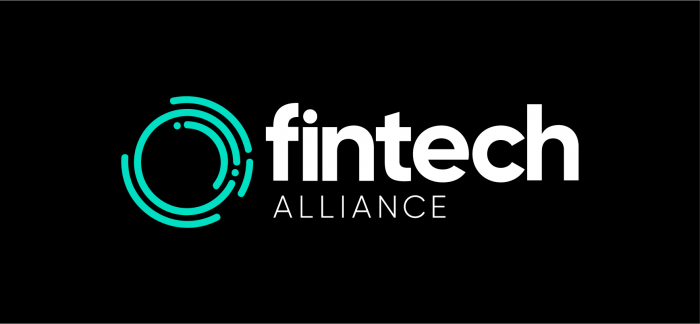"At Investec, where modernisation through technology has been a key strategic focus for the past five years, one in four employees is a now tech specialist" - Lyndon Subroyen, global head of digital and technology at Investec.
While some companies in the financial services sector view technology merely as an enabler, others have embraced digital-led innovation as a strategic imperative.
Digitalisation was already a key theme in the growth strategies of financial services providers before the global Covid-19 pandemic struck. The need to innovate in response to shifting customer demands around engagement and experience, rising industry disruption from digital-native challenger banks or pivots from major digital-native businesses, and the need to respond to a dynamic regulatory environment has spurred digital transformation and entrenched an innovation agenda across the industry.
However, the pace and scale of digital transformation have varied between institutions. While some viewed technology merely as an enabler, others embraced digital-led innovation as a strategic imperative. When the pandemic hit, it forced financial services providers to accelerate aspects of their digital transformation roadmap. While serving as a catalyst for remote working and omnichannel client engagement solutions to circumvent lockdown regulations and social distancing requirements, the pandemic exposed the digital adoption laggards.
With industry players at different points on their transformation journey, the early adopters and innovators that were unencumbered by legacy technology quickly pivoted operations in response to the crisis. The rest have scrambled to develop solutions that can address the unique and unprecedented challenges posed.
At Investec, where modernisation through technology has been a key strategic focus for the past five years, one in four employees is now a tech specialist.
The groundwork done in addressing client experience through digital channel enablement and workforce collaboration across our global footprint enabled a seamless transition. The technology modernisation agenda will continue as banks look to capitalise on the rapid acceleration of technological advancement, capture emerging opportunities and effectively operate in a digital-first era.
Digitalising an organisation's DNA requires a multi-faceted approach that blends industry best practices with cultural and operational realignment and strong product management practices. Many institutions are also accelerating their digital enablement by bringing innovation partners into their ecosystems in the form of fintech providers or other peer group partners.
In this regard, Investec takes a multidimensional partnership approach, either through strategic collaborative agreements, providing seed funding to early-stage, high growth companies, or acquiring relevant fintech companies. These fintech partnerships help drive digital transformation and address many of the challenges posed by digitalisation.
For example, Investec's programmable banking project aims to capitalise on an emerging fintech trend.
In collaboration with OfferZen, Investec South Africa has made private bank accounts programmable so clients can code their own bank experience.
With software engineering a key profession of the future, Investec and OfferZen are working together to enable developers to access the world of banking according to their preferences in South Africa. This functionality allows clients to personalise and craft their preferred user experience, such as setting up custom budgeting and notifications, and implementing bespoke rules around card usage and spending limits, as examples.
The project also builds on the open banking trend, which is transforming the industry globally by creating an open innovation ecosystem.
The EU has already launched its payment services directive two (PSD2) regulation for electronic payment services. This triggered the first big wave of open banking innovation, where banks make customer data and payments infrastructure open to clients, fintechs and other potential partners.
There's an obvious path emerging based on global trends that will increasingly influence the financial services sectors around the world to publish open APIs. This will create a new category of fintechs as it unleashes creativity to deliver previously unimagined solutions.
The other fintech frontiers likely to receive increased focus in the future include a more entrenched role for artificial intelligence (AI), enhanced back-end integration, and digital currencies. Narrow AI is already in use in fraud prevention and cybersecurity within the industry but will increasingly play an important role in how the sector strategically uses the immense data it has at its disposal.
Where manual analysis applies a retrospective lens to data to provide a hindsight view, advances in AI can now provide insight into what is happening in real time. Emerging applications now provide foresight through predictive analytics to inform what might happen in the future.
The applications of these capabilities are exciting, from pre-emptive product and service offers to enhance the customer experience, to automated financial planning and investment guidance, among others.
On the back end, accelerating internal transformation with fintech solutions could address the disconnect that currently exists between seamless front-end client onboarding and the intensive manual administrative processes required to process these transactions behind the scenes.
A lot of work still goes into making these engagements feel low-touch, but the industry requires a unifying regtech or fintech solution that will streamline client onboarding from end-to-end and meet compliance requirements around know your customer (KYC) and anti-money laundering (AML) regulations.
In this regard, blockchain technology could offer potential solutions, although it is driving fintech development around the use of digital currency. The productive use of digital currency can create value if the industry can cut through all the Bitcoin hype.
The local industry needs a sandbox to advance this agenda through broader collaboration between developers, financial institutions, and regulators.
The fintechs that have operated in the space to date have generally focused on creating an exchange of value, where users can convert fiat currency into digital cryptocurrencies. However, there is immense potential value in creating a form of digital money that can flow freely to unlock new benefits and applications in the broader financial system.
Overall, fintech continues to mobilise the financial services space by creating competition and driving innovation. Whether it is big tech pivoting to leverage their massive user base and global footprints, or start-ups disrupting markets with niche plays, the competition will challenge incumbents to respond, which is ultimately good for the sector and for clients.








